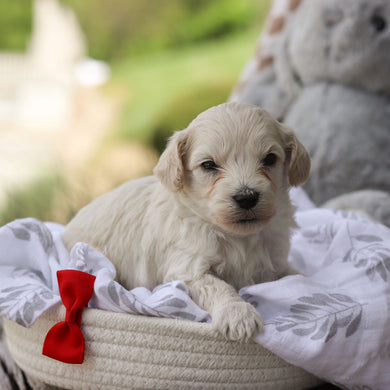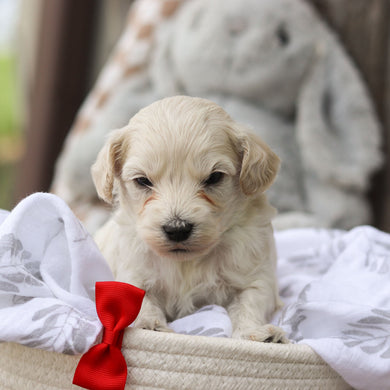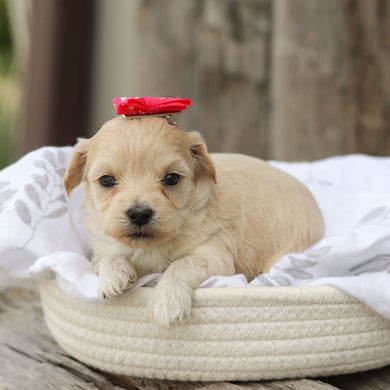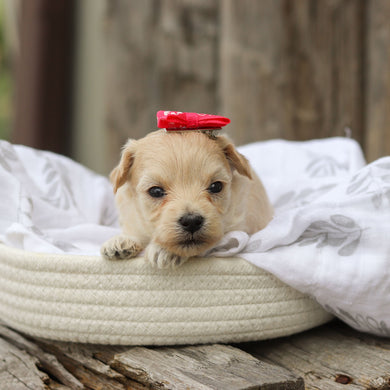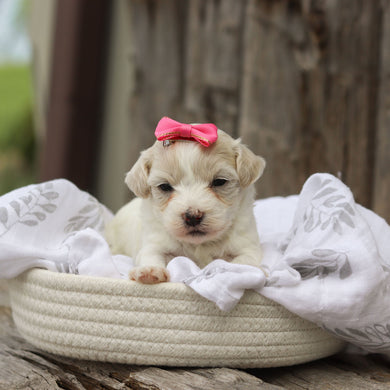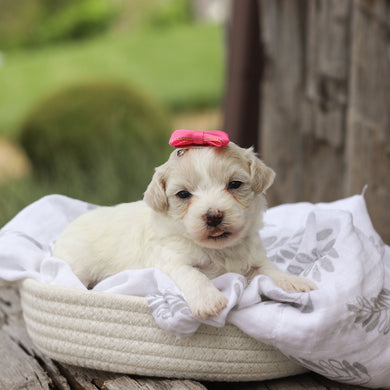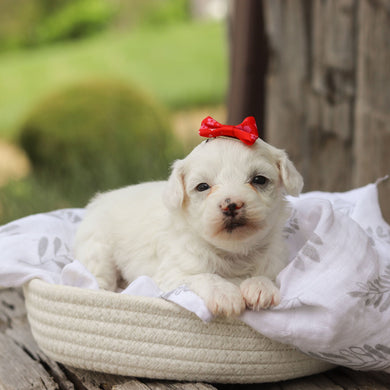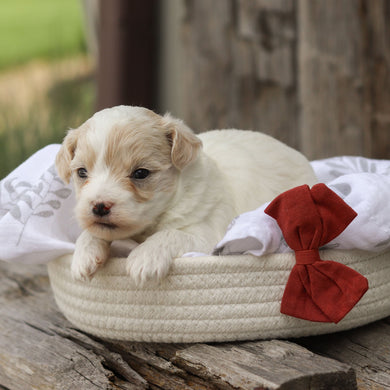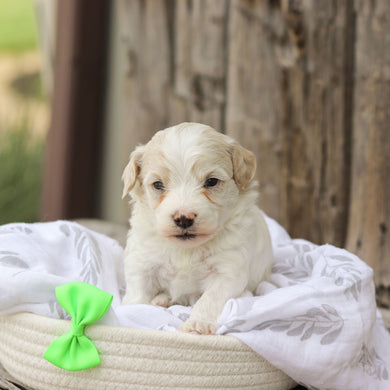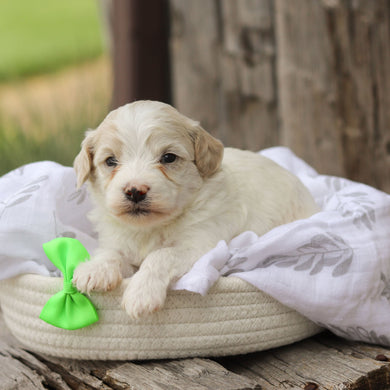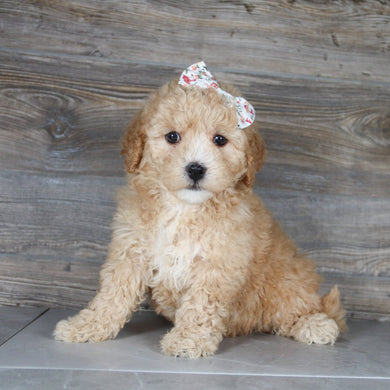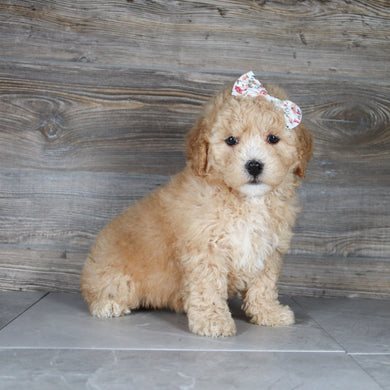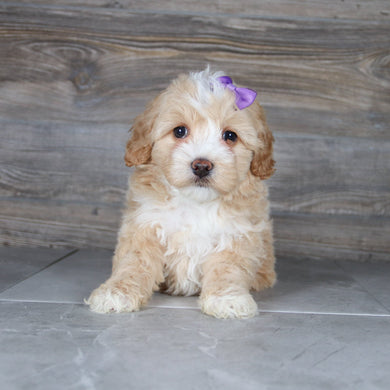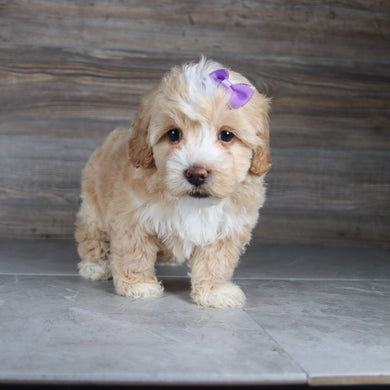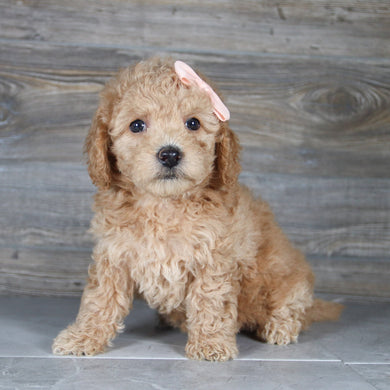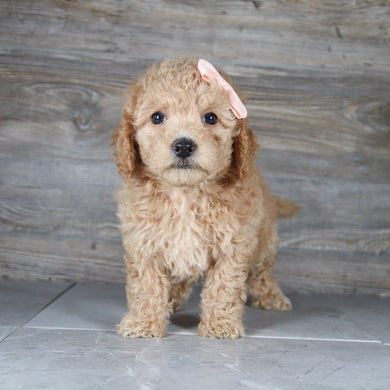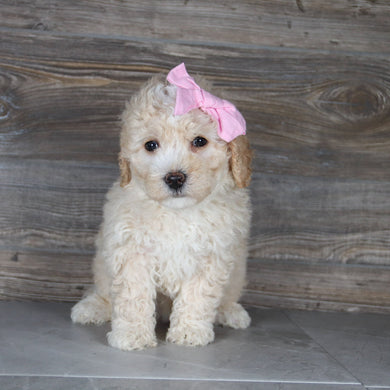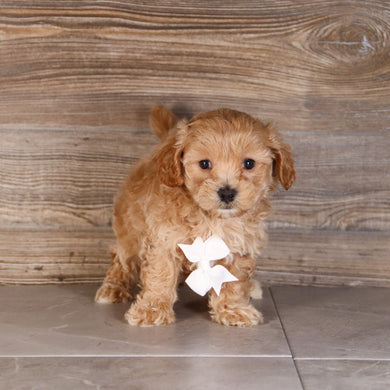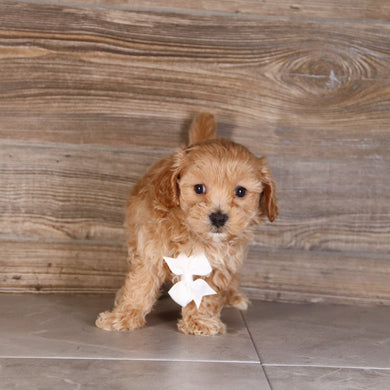Teacup Maltipoo
Lively. Cuddly. Intelligent.
- Up And Away PupsHome
- Teacup Maltipoo
- Teacup Maltipoo
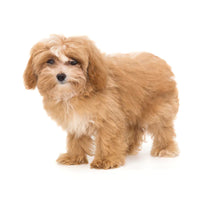
- Small and loving companion
- Intelligent and lively
- Gentle
- Family-friendly
- Ideal for those with allergies
Also called Malti-Doodle, Malt-A-Doodle, Maltidoodle, Maltedoodle, Malt-oodle, Malt-A-Poo, Malta-Poo, Malta Poo, Malti-Poodle, Malte-Poo, Maltepoo, Maltesepoo, Maltese-Poodle, Maltesedoodle, and Moodle.
Filter
Breed Info
Temperament
Feisty & Cuddly
- Energetic
- Alert
- Loving
- Family companions
- Early socialization can help them be comfortable with small kids and other animals
- Friendly w/ strangers but will bark at unfamiliar folks
Appearance
Small & Cute
Build:
- Small
- Mid-length floppy ears
- Dark or blue eyes
- Square shaped body
- Hooked or curled tail
Coat Type and Color:
- Medium to long hair
- Wavy to curly
- Wool-like texture
- No undercoat
- Ideal for those with allergies
- White
- Cream
- Apricot
- Cafe-au-lait
- Brown
- Blue Gray
- Black
- Silver
Size:
- 5-20lbs
- 8-14 inches tall
Exercise
High Activity
- Energetic
- Love the outdoors and going for walks
- They like to expend energy at the dog park or backyard
- Mental stimulation is as important as their physical exercise
- Enjoy agility exercises
- Adaptable to any home environment
We Recommend:
- 40minutes of daily activity
- 5 miles of walking per week
A mixed breed that crosses the Maltese and Toy Poodle. It was created for companionship, although date is unknown.
The History of the Maltese:
- Originated in Malta near Mediterranean Sea
- Ancient mix of a Bichon and a Spaniel
- Called many names throughout the years
- Used to comfort the sick
- Have remained a companion throughout the years
- Often the subject of literature and art
- Arrived in the United States in the 1700's
The History of Poodles:
- Can be traced to Roman & Egyptian times
- The French used the variety of poodle sizes for duck hunting, sniffing out truffles and small companions
- Used in circuses because of how quickly they learned tricks
- Was the most popular breed in America from the 1950's to the 90's
Grooming:
- Not high maintenance
- Brush weekly
- Check and clean ears weekly
- Wipe eyes with a damp cloth
- Brush teeth a few times per week
- Trim nails monthly
Training:
- Intelligent and sensitive
- Easily trained with praise and positive reinforcement
- Maintain gentle and positive tone
- Early socialization and obedience training will help your pup get along well with others
- Keep working on skills and challenges as they need regular mental stimulation


